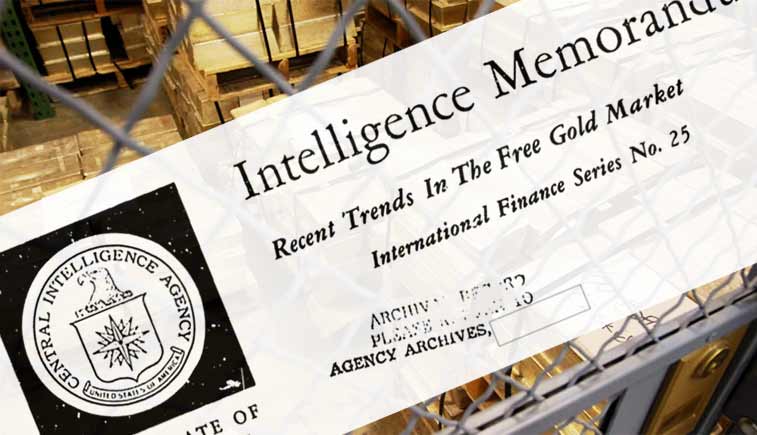Look around the internet, and you'll find a plethora of reports detailing scandals in the gold market. From complicated central bank intervention to Deutsche Bank price rigging, is there room for retail investors to succeed? We are going to look at how is the gold market manipulated to answer why is the gold market manipulated. But first, are you David fighting against Goliath? And how much impact should manipulation have on your gold bullion buying habits ?
Let's get started at breaking up the facts from fiction. While we will outline several serious serious problems with precious metals markets, there is also a lot of hyperbole. One recurring challenge is figuring out what constitutes market manipulation. Historically, answering "is the gold market manipulated" would be an exercise in laziness. Just look to the original 1869 Black Friday gold scandal.
So where do we start? It's time to talk about the bad and the ugly...those rumours you hear about "big banks" that just might be true.
How is the Gold Market Being Manipulated?
According to Goldseek, gold market manipulation is “the biggest financial crime in history." Chris Powell, Secretary of the Gold Anti-Trust Action Committee, comments in similar respect on the worsening impact of gold price manipulation by world central banks. The essence of such arguments is that governments are actively manipulating precious metals prices to have the upper hand. Over time, this can be very lucrative.
Central banks have a vested interest in keeping gold prices far lower than they should be. They also have a vested interest - due to high trading volumes - to fatten spreads against counter-parties. With their overwhelming share, they will forever remain major players in what would otherwise be a free and open market environment.
In fact, the LBMA, traditional home of the gold fix could serve as an easy way for players to influence small price changes in their favour. At first glance, the COMEX futures marketplace is more transparent. However, it may be much more easily influenced by market pressures.
Other facts supports market manipulation are the Hunt Brothers' corner of the silver market in the 1970s. Following that, in 1980s, the US government was busy preventing the price of gold and silver from rising any farther (thus further devaluing the greenback). Goldseek's Steward describes how the government “lied, cheated, and stole.” The game was to keep the price of silver low in the face of major silver investment from oil barons Bunker and Lamar Hunt.
Could This Mean That Gold is Still Significantly Undervalued?
Yes. However, some might argue that in a truly free market, we need to take a longer-term view. In other words, agents try to influence conditions day-to-day and that is exactly what establishes long-term prices. Still, this is only a half-defence. Within it lies the problem that most investors don't have decades to smooth out highs and lows and demand a more transparent and accountable financial system.
The Official Answer on if the Gold Market is Being Manipulated
A now partially-declassified 1970s CIA report titled Recent Trends in the Free Gold Market a probable market manipulation. The report explained how Zurich private banks effectively manipulated the London Gold Fix. Beyond private interests, how did government banks get involved? Government officials have always done what they thought best to keep inflationary pressures on paper money at a bare minimum. In fact, the issue of paper currency being devalued is a major reason why governments have intervened so heavily since the 1970s and 80s.
In more recent years, governments have found other ways to tackle monetary policy. for example, buying and selling assets denominated in foreign currencies. Still, is there something more sinister at work here? Does it amount to gold fixing if the Federal Reserve agrees to “lease gold in increasing quantities should the price rise?” Avi Gilburt referenced Alan Greenspan in this respect. Gilburt brings some sense into the argument in referencing this quote from Mr. Greenspan, former Chairman of the Federal Reserve of the United States.
Is this the evidence conspiracy theorists have been looking for? Is the gold market manipulated? Or is this referring to the role of central banks in keeping prices relatively stable, say, when someone was trying to manipulate the market.
Bringing the Facts Together.
There are many strategies behind the gold reserves kept by central banks, and arguably many of these skew markets in unpredictable ways. While central banks are less likely to engage in regular market manipulation, they often benefit from strategic movements. To offer a hedge against inflationary pressures, governments and private actors must expose themselves to market pressures. These pressures combine with an opaque accountability system to encourage economic actors to skim value.
The challenge for small investors is that there is little we can do to conclusively evidence major players' misdeeds. With that in mind, we can ask is the gold market manipulated in the long-term? Many people would agree that we can mitigate temporary effects by investing with a long-term mindset. The federal reserve, for example, will likely always keep a large amount of actual gold in its possession because it stabilizes market expectations. And if that's the case, there may still be a lot of potential for both large and small investors.

